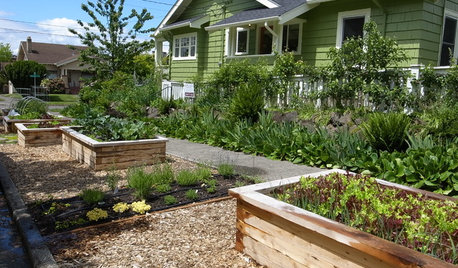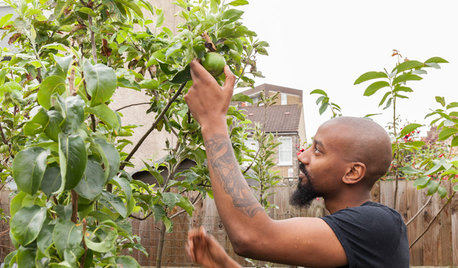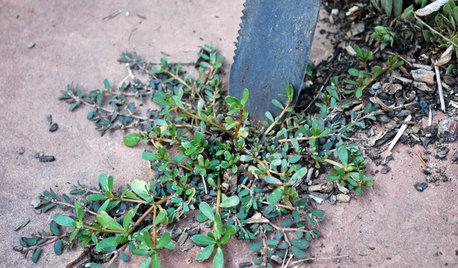Using guineapig poop as fertilizer...
tomato_happy
15 years ago
Related Stories

GARDENING GUIDESGet on a Composting Kick (Hello, Free Fertilizer!)
Quit shelling out for pricey substitutes that aren’t even as good. Here’s how to give your soil the best while lightening your trash load
Full Story
GARDENING GUIDESThe Poop Scoop: Enrich Your Soil With Good Old Manure
Get over the ick factor already — this natural super-ingredient for soil has so many benefits, you'll wonder why you ever went chemical
Full Story
BEFORE AND AFTERSSee 6 Yards Transformed by Losing Their Lawns
Wondering whether a turf lawn is the best use of your outdoor space? These homeowners did, and they found creative alternatives
Full Story
GARDENING GUIDESLush, Foodie Abundance in a Small Urban Garden
This modest backyard garden provides its owner with fruit and vegetables all year round, thanks to an innovative low-maintenance approach
Full Story
BATHROOM DESIGNStraight Flush: The Future of Toilets in the Home
Night lights, seat warmers and temperature-controlled bidets are here — and that’s just the beginning
Full Story
EARTH DAYGrow a Beautiful Garden With Ecofriendly Greywater
Reducing home water waste means lower bills and a healthier planet. Here's how to set up a greywater home irrigation system that can help
Full Story
GARDENING AND LANDSCAPINGBackyard Living: The Scoop on Chicken Coops
Perk up your morning with fresh eggs and chickadee clucks when you build a chicken coop in your own yard
Full Story
LANDSCAPE DESIGN15 Great Ideas for a Lawn-Free Yard
End the turf war for good with hardscaping, native grasses and ground covers that save water and are easier to maintain
Full Story
GARDENING GUIDES5 Ways to Naturally Win the Weed War
Show irksome weeds no mercy with these tricks for combating them sans chemicals
Full Story
LANDSCAPE DESIGNNatural Swimming Pools: More Beauty, No Chemicals
Keep your skin and the environment healthy with a pool that cleans itself, naturally
Full StoryMore Discussions






digdirt2
tomato_happyOriginal Author
Related Professionals
Norfolk Landscape Architects & Landscape Designers · South Orange Landscape Architects & Landscape Designers · Conroe Landscape Contractors · Louisville Landscape Contractors · Oxnard Landscape Contractors · North Lauderdale General Contractors · Saginaw General Contractors · Saint Andrews General Contractors · Spanaway General Contractors · West Melbourne General Contractors · Baileys Crossroads General Contractors · Centennial Decks, Patios & Outdoor Enclosures · Crystal Lake Decks, Patios & Outdoor Enclosures · Dedham Decks, Patios & Outdoor Enclosures · Hot Springs Village Decks, Patios & Outdoor Enclosuresdigdirt2
plant-one-on-me
sunnyk
keren123_yahoo_com
Sage_2512_yahoo_com